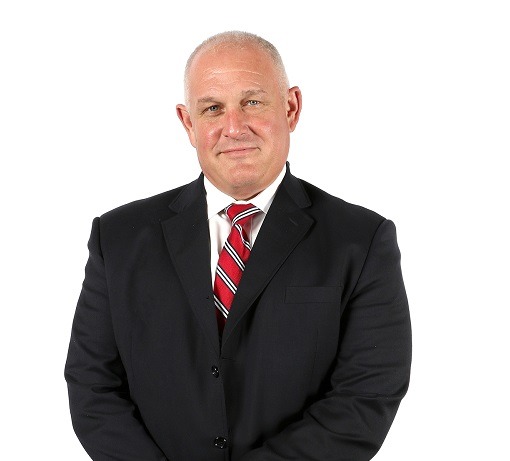The EB-1A is a category of immigrant petitions for foreign nationals of extraordinary ability. In order to qualify, an applicant must demonstrate extraordinary ability in the arts, athletics, business, education, or sciences through sustained national or international acclaim. “Extraordinary ability” is defined as “a level of expertise indicating that the individual is one of those few who have risen to the top of the field of endeavor.” 8 C.F.R. § 204.5(h)(3).
Extraordinary ability may be demonstrated through receipt of a one-time achievement of major significance (such as an Academy Award, Nobel Peace Prize, Grammy Award, Pulitzer, etc.) or at least three of the following ten criteria:
- Evidence of receipt of lesser nationally or internationally recognized prizes or awards for excellence;
- Evidence of membership in associations in the field which require outstanding achievement of their members;
- Evidence of published material about you in professional or major trade publications or other major media;
- Evidence that you have been asked to judge the work of others, either individually or on a panel;
- Evidence of original scientific, scholarly, artistic, athletic, or business-related contributions of major significance to the field;
- Evidence of the authorship of scholarly articles in professional or major trade publications or other major media;
- Evidence of work that has been displayed at artistic exhibitions or showcases;
- Evidence of employment in a leading or critical role for organizations with distinguished reputations;
- Evidence of a high salary or other significantly high remuneration in relation to others in the field;
- Evidence of commercial successes in the performing arts.
Besides providing extensive evidence of extraordinary ability, the applicant must also demonstrate that she/he continue to work in the recognized field in the United States and the petition must show that the beneficiary’s entry will substantially benefit the U.S. prospectively.
In part one of the analysis, CIS will first evaluate the evidence submitted to determine which of the regulatory criteria the beneficiary meets. If the petitioner (or self-petitioner) establishes that the beneficiary has received a one-time achievement or meets at least three of the above-mentioned criteria, then USCIS will evaluate all of the evidence to make a final merits determination of whether or not a preponderance of evidence demonstrates that the beneficiary has sustained national or international acclaim and that the beneficiary’s achievements have been recognized in the field of expertise.
EB-1A FAQ
Q: Do I need to have a U.S. employer petition for me?
A: No. Unlike a majority of the other employment-based petitions, an offer of employment is not required and you may self-petition. However, USCIS does require clear evidence that you will be coming to the United States to continue to work in the field in which you have extraordinary ability. Evidence may include letters from current or prospective employers, evidence of prearranged commitments, contracts, or a statement detailing future plans.
Q: If I have an O-1 visa, can I also qualify for the EB-1A?
A: Possibly. Many of the requirements for the EB-1A are similar to those of the O-1A visa. Therefore, many foreign nationals who have qualified for the O-1 have subsequently qualified for the EB-1, however, it is important to note that the requirements of an I-140 EB-1 petition are much more stringent than an O-1, thus demanding an even higher amount of evidence for special talent than the O-1. If an individual was previously granted O-1 status, this may be considered as persuasive, but not controlling.
It is also important to note that the alien you must have enjoyed sustained national or international acclaim, and such acclaim must be continuous and current. Thus, an individual may have achieved extraordinary ability in the past, but may end up not qualifying later based on failure to maintain a comparable level of acclaim.
Q: Do I need to file a PERM Labor Certification application with the Department of Labor?
A: No. Not only is a job offer not required, an EB-1A petition does not require a PERM Labor Certification (ETA Form 9089) to be filed and certified by the DOL neither. Most of the other employment-based green card categories (e.g. EB-2 or EB-3) require that the employer go through an extensive recruitment process to obtain this labor certification from the DOL.
Q: When can I apply for my green card?
A: If you are eligible to adjust status in the U.S., you may apply for your green card (Form I-485) once your I-140 is approved and your priority date is current. An I-140 petition is the underlying petition whereby we convince USCIS to determine that you are a foreign national of extraordinary ability. Once you (or your employer) files your I-140 petition, the filing date becomes your priority date. With an approved I-140, you are now uniquely positioned to file your green card application. The Department of State releases a monthly visa bulletin that provides the Final Action Dates for that month. If your priority date matches or passes the Final Action Date in that country, then you may file your I-485 or green card application.
Q: Can I file my I-140 petition at the same time as my I-485?
A: Yes. If a priority date is current, USCIS allows concurrent filing of Form I-140 and I-485, however, CIS may adjudicate and approve the visa petitions separately in cases where a visa becomes unavailable after concurrent filing. Some benefits of concurrent filing include the ability to file Form I-485 sooner, obtaining work authorization and travel documents once your I-485 is filed, and having work authorization allows you to leave your current employer and work elsewhere in the same or similar occupational classification after the green card application has been pending for at least 180 days.
Q: What if I’m not currently in the U.S.?
A: Adjusting status in the U.S. is an option available only to those who are currently already lawfully in the U.S., for instance, with an H-1B or O-1 visa. If you are not in the U.S., you will need to take the consular processing route. This is a method by which a beneficiary of an approved immigration petition can apply for a visa through a U.S. consulate or embassy office abroad.
Q: What about my dependents?
A: Spouses and children under the age of 21 can apply for I-485 applications along with you.
Q: How long does the EB-1A process take?
A: This varies. Generally, it takes at least 6 months for USCIS to adjudicate these petitions, however, Premium Processing of the I-140 is available. For an additional fee, CIS guarantees 15 calendar days to process the case, and if CIS does not meet this deadline, you will be refunded the fee. Please note that adjudication may result in either an approval, denial, or a Request for Evidence (or “RFE”). There may be an additional delay if an RFE is issued. Once CIS receives the RFE response, it will continue to adjudicate the case. It is generally recommended that cases be filed with Premium Processing to shorten the wait time. However, even though premium processing ensures expedited processing, you cannot file Form I-485 or consular process until the priority date is current.
Over the years, W&O’ has handled a wide variety of cases and helped countless individuals of extraordinary ability to achieve their dreams of immigrating to and working in the U.S. in their respective fields of endeavor. This extensive list of extraordinary individuals includes athletes, coaches, businesspersons, musicians, engineers, soccer athletes and coaches, individuals in the film and/or television industry, scientists and culinary artists.
We are very humbled to have been a part of these talented individuals’ journeys. It is important to note that every case is different and these are only examples of the hundreds of types of EB-1A cases that we have encountered and conquered here at W&O’. This is why it is highly recommended to have a qualified immigration attorney that understands the intricacies of immigration law. Here at W & O, our team of experienced attorneys have dealt with a wide range of cases and would be delighted to assist you with yours.
ABOUT THE AUTHOR(S)

Nancy Vo – Attorney
Nancy Vo is an Associate Attorney at Wilner & O’Reilly. She graduated Magna Cum Laude from Whittier Law School. While at Whittier. She was an editor on Whittier Law Review and earned a CALI award in Legal Writing. She earned a Bachelor’s Degree in Political Science and Public Law from the University of California, San Diego. She works in the firm’s employment-based practice where she focuses on non-immigrant applications for Aliens of Extraordinary Ability, L-1 intra-company transfer visas for executives and managers, and E-2 treaty visas. Ms. Vo grew up in Los Angeles with three older sisters and parents who were all refugees from Vietnam. She is a first generation Vietnamese American and the first in her family to enter the legal field.

Richard Wilner – Founding Partner
Richard M. Wilner is a founding member of Wilner & O’Reilly, APLC and is Board Certified by the State Bar of California as a Specialist in Immigration and Nationality Law. He is admitted to practice law in the State of California and before the U.S. District Courts for the Central, Northern and Southern Districts of California, the Northern District of Texas, the U.S. Court of Appeals for the Ninth Circuit and the U.S. Supreme Court.Mr. Wilner has received the coveted Martindale-Hubbell AV Rating, the highest legal and ethical rating that one can receive from one’s peers in the legal community. Similarly, he has been awarded the title of Super Lawyer from 2007 to the present. He is best known for his work in advising Fortune 500 companies, middle and small market businesses, entrepreneurs and foreign nationals of extraordinary ability in athletics, arts, and sciences in the complex area of U.S. Immigration and Nationality Law.


Comments are closed.